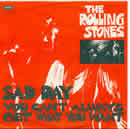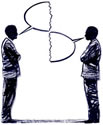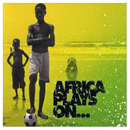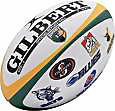Hot topics click link for more
In Sports and Media
 Television thrives on predictability. For two decades reality TV definedthe medium - from Big Brother and Survivor to Dancing With Stars and the ubiquitous Got Talent franchise. Broadcasters have been thrown off their pace by the ascendent streaming services, not limited to Netflix, taking advantage of new technologies and spending fortunes on top drawer productions.
Television thrives on predictability. For two decades reality TV definedthe medium - from Big Brother and Survivor to Dancing With Stars and the ubiquitous Got Talent franchise. Broadcasters have been thrown off their pace by the ascendent streaming services, not limited to Netflix, taking advantage of new technologies and spending fortunes on top drawer productions.
As the merry seasons change so, too, sports. Every season has its preferred sports; indoor moves outdoor and vice versa. Every season, though, is fit for TV sports. But for sports fans there is always the next game, match, bout or race - all on TV.
There was a moment, about five years ago, when major investors in sports rights felt a tipping point nearing. Rights fees had risen to a level that challenged sustainability. Minor investors had begun to flee the process, just as the big guys planned. With that, rights holders could foresee recovering those huge investments.
The new sport for broadcasters is spending; often borrowed, always huge. More is being spent, largely on content, sometimes technical tricks, by rich newcomers not around a decade ago and legacy rivals hoping to be around a decade from now. There will be winners and losers but fewer teams.
In the great department store of life, television shows all the pretty things along with, sometimes, garden tools and the dirt they go into. Viewers are attracted to the full range. Sports, of course, is the candy aisle, where television excels. “Life is like a box of chocolates,” said widely quoted world philosopher Forrest Gump. “You never know what you’re gonna get.”
Traditional television broadcasters have been backed into a painful corner. Video on demand services of the subscription kind are steadily raiding viewers who will pay for top flight drama and comedy series. Big name live sports is increasingly the domaine of pay-TV operators. Free-to-air broadcasters find the left-overs less than tasty.
The transcendent advantage of live events, and competition for them, has the complete and full attention of television broadcasters. This means, for most broadcasters, sports. Acquiring rights to the biggest events is evermore costly as is the expense of maximising every produced second. The thrill of the unexpected, surprising and even shocking attract huge audiences to live sports, perhaps more than victories and defeats. It is a television broadcaster's major prize.
European public broadcasters once held a distinct advantage in sports broadcasting, largely from generous staffing and advantageous sports rights contracts. Those days are fading fast. Pay-TV operators and telecoms have roared into sports broadcasting with buckets of money.
Television viewers have benefited greatly from new actors on the media scene. All that competition from nimble new faces has brought more cool stuff to screens of all size. And prices are lower. It’s making broadcasters crazy.
 The pay-TV business is certainly getting complicated. Customers once were enticed by premium movies and sports, a fairly straight-forward proposition; take it or leave it. Now the product range may include broadband and mobile connectivity as well as boxes on top of the TV set and boxes filled with DVDs. Every customer in the digital age can custom-order a basket filled with every want and desire.
The pay-TV business is certainly getting complicated. Customers once were enticed by premium movies and sports, a fairly straight-forward proposition; take it or leave it. Now the product range may include broadband and mobile connectivity as well as boxes on top of the TV set and boxes filled with DVDs. Every customer in the digital age can custom-order a basket filled with every want and desire.
It’s another digital dividend. Telecoms fat with cash are taking over the television business. Once again distribution trumps content. Lucy has grabbed the football once again.
Sports rule media, plainly in evidence from last weekend’s parade of big events. Broadcasters typically pull out all the stops to attract viewers, investing in time, talent and technology. Pay-TV challenges free-to-air channels and all-sports channels proliferate. Players play, viewers watch and rights fees rise.
There is a vast difference between radio and television sports coverage. Some would say television gets all the pictures while radio gets all the talent. Sports on the radio will always be interesting to listeners and sponsors. What to do when the stadiums are quiet is a worry for another day.
The Olympic Games are on. The opening ceremony was brilliant. London is prepared, despite nutters’ ramblings. But before broadcasters have too much fun, best check with the lawyers. There are rules and rules and rules.
It’s only a matter of hours now before the next big television event of the year. Broadcasters are offering more hours with more reporters and commentators. There will be HD, 3D, mobile TV and, well, more. Everybody is having a go at it, hoping to satisfy the insatiable fans. The accountants will have a go at it later.
Content may still be king but with platforms galore slicing up rights deals is the new business reality. The arithmetic has become so complex it’s starting to look like counterparty exchange swaps. Yep, that’s language of high finance.
 Dictators and oligarchs aren’t alone in their loathing of the news media’s prying eyes. The public may have the right to know weather forecasts and recipes but reporting anything more critical, or even inconvenient, will be punished. Of course, we’ve seen this all before.
Dictators and oligarchs aren’t alone in their loathing of the news media’s prying eyes. The public may have the right to know weather forecasts and recipes but reporting anything more critical, or even inconvenient, will be punished. Of course, we’ve seen this all before.
The world is football (soccer) mad. There’s no denying it. For many World Cup participating countries, although still not the US, when their games are on TV more than half the population watch. Note we particularly say watch since hearing is another matter as we all welcomed to the land of the vuvuzela.
The lucrative relationship between television and sports is wrapped in love. Great sums are collected and spent with, seemingly, no limit in sight. Somebody, of course, has to pay but who’s to say what is fair?
The tragic death of the Georgian luge athlete cast the first real Olympic soul-searching in global newsrooms – they had the video, should they show it? Many terrestrial TV newscasts had him coming down the slope but when tragedy was about to strike most cut away – on Britain’s commercial ITV news, for instance, the anchor said it was “too upsetting” to see.
 Television, sports and money fit together nicely. They form an eternal triangle, feeding each other and feeding on each other, rising higher, getting richer. Everybody’s happy when they get what they want.
Television, sports and money fit together nicely. They form an eternal triangle, feeding each other and feeding on each other, rising higher, getting richer. Everybody’s happy when they get what they want.
This column has often said that above all the Olympic movement is big business – a multi-billion dollar business – but the International Olympic Committee (IOC) has shown that money is not everything by throwing Chicago out in the first round of voting for the 2016 Olympic Games – a decision that could well cost it more than $100 million, and perhaps a lot more, in lower US TV rights for the “Samba” Games.
All sporting eyes will be on Copenhagen Oct. 3 when the International Olympic Committee (IOC) decides which city – Chicago, Madrid, Rio de Janeiro, or Tokyo – gets to host the 2016 summer Olympic Games. But for all the presentations that will be made – Michele Obama will be heading the US delegation – will those presentations really matter, or behind the scenes is it US Televsion revenue that really will rule the day?
The Olympic Games and television fit together so sensationally that the broadcasts are highly anticipated. Now, of course, “the thrill of victory and agony of defeat” is watched on big and small screens, arriving by broadband as often as ether. Broadcasters sufficiently endowed with Olympic broadcast rights pull out all the stops to make each quadrennial event bigger and better.
Every sport has its rabid fans. Craziness aside, it’s the fans – and super-fans – who drive broadcast sports and sports marketing. New media gives broadcasters a new tool for building audience and revenue.
Big pay-TV operators are chasing the money and nothing rings the television cash machines more than sports. Exclusivity is the key. The fans will pay anything, or will they?
It was nail-biting tennis full of suspense but Monday’s Wimbledon singles match between the British idol Andy Murray and the unknown Swiss Stanislaw Wawrinka (Mr. Federer is the known Swiss) had one ingredient never before experienced – it was played under the lights of the new Center Court sliding roof and a great tennis match became a huge nighttime TV success. But Wimbledon being Wimbledon, where change is very slow to progress, the organizers said this was the exception, not the rule, but you just know TV executives want to persuade them differently.
Formula One racing is considered a perfect television event. Without those really expensive tickets and a yen for the high octane smell the best seats are in front of the digital screen in the living room. Last year 600 million watched, 3 million more than in 2007. But, maybe, 2009 is different.
Newspaper readers are not stupid; they recognize editorial cutbacks when they see them – they may not always complain but they know what is going on -- which is why the Washington Post has had to come clean on its baseball coverage cutbacks.
 The war of words continues to escalate between public broadcasters and the International Olympic Committee (IOC). German broadcaster ARD is the most recent public broadcaster to vent frustration at rights fees it says it cannot stomach. The IOC says the broadcasters’ complaint is tantamount to blackmail. Both side seem to be talking past each other.
The war of words continues to escalate between public broadcasters and the International Olympic Committee (IOC). German broadcaster ARD is the most recent public broadcaster to vent frustration at rights fees it says it cannot stomach. The IOC says the broadcasters’ complaint is tantamount to blackmail. Both side seem to be talking past each other.
The International Olympic Committee is meeting this week for the official debriefing on the Beijing Olympic Games. The main topic of conversation is money, likely the only topic; how to get and keep more. That means keeping the media under control.
Everybody loves huge sports deals. Sports leagues and franchise holders love television, probably more than anything… after money. But mix big sports with big TV and, well, other things happen. You need plan B.
The really big players won gold at the Beijing Olympics -- NBC made a decent profit which means the International Olympic Committee (IOC) will do even better for future TV rights and China’s $43 billion investment wooed the world with an “exceptional” show.
The world, except for the US, got to see the Olympic opening ceremonies live and In many countries it was close to a 50 share or higher but for Americans trying to see those festivities live on the Internet – about 12 hours before NBC’s telecast – the opportunities were fleeting with most illegal video postings getting removed very quickly.
 As the countdown to the Beijing Olympics ticks louder media watchers, broadcasters and European officials see only no let-up in Chinese authorities’ intention to stage-manage all coverage.
As the countdown to the Beijing Olympics ticks louder media watchers, broadcasters and European officials see only no let-up in Chinese authorities’ intention to stage-manage all coverage.
Finally the World Association of Newspapers (WAN) has issued a resolution condemning the growing tendency of sports organizations to restrict coverage of their events, both in print and digitally.
The International Olympic Committee (IOC) took a big gamble back in 2001 when it awarded China the 2008 Beijing Olympics. There were legal documents signed and moral commitments given but the bottom line was that everyone believed China in the intervening years would work on improving its human rights and press freedom records and that would be good for the world’s democracy. Now, just a few months before the Games are held, the recriminations begin.
Broadcasters quiver at the mention of sports rights. They argue, deal and – always – pay. Recent signings show how competition and scarcity work that market magic to drive up the price.
 Human rights groups, press freedom organizations and the like are really putting the screws on China to keep promises made back in 2001 when awarded the Olympic Games, and the Chinese had given an outward appearance of loosening things up a bit, but then came Tibet to prove the sham of it all. The western media also criticized the International Olympic Committee (IOC) of squandering an opportunity via its “quiet diplomacy” to pressure China into the 21st century, but it’s not too late. The IOC President is in China next week and now the two sides really need to get down to the business of business.
Human rights groups, press freedom organizations and the like are really putting the screws on China to keep promises made back in 2001 when awarded the Olympic Games, and the Chinese had given an outward appearance of loosening things up a bit, but then came Tibet to prove the sham of it all. The western media also criticized the International Olympic Committee (IOC) of squandering an opportunity via its “quiet diplomacy” to pressure China into the 21st century, but it’s not too late. The IOC President is in China next week and now the two sides really need to get down to the business of business.
Football matches are events made-for-TV. Broadcasters bid against each other for rights virtually assured of the advertising and audience bonus. For this summers’ Euro 2008 championships Polsat bought all rights freezing out public broadcaster TVP.
They say sometimes that when you are in the forest you don’t see the trees, so to American audiences Sunday’s four hour extravaganza for what should have been a 60 minute Super Bowl football extravaganza plus half-time on commercial television was par for the course and probably didn’t raise any eyebrows.
With all attention on Arizona Sunday for this year’s Super Bowl, the question openly being asked in Europe , given National Football League (NFL) Commissioner Roger Goodell’s penchant for internationalizing the game, is how long before there’s a Super Bowl in London’s Wembley Stadium?

For broadcasters and telecoms to ad agencies and sponsors, sport is, again, the best hope for a brighter (financial) day. Africa’s Cup of Nations football tournament opened this past weekend to an expected audience of one billion. By years’ end sports programming will enrich many; certainly those who place the right bet.
The big deal in television broadcasting these days is sports. Advertisers are willing to pay premium rates to get in on the big games. Rupert Murdoch said that Fox Sports recently got $3 million for a 30-second ad on the 2008 Super Bowl telecast
Go to London’s famed Trafalgar Square and right there in front of Nelson’s column is a 26-foot high model of Miami Dolphin’s defensive end Jason Taylor, wearing what must be the world’s largest football jersey. But “Big JT” won’t be there for long, at the weekend the one-ton electronically animated figure goes on tour of various London communities, accompanied by the Dolphins’ cheerleaders, an NFL tailgate party with American food and live music.
It was a rotten weekend for British sports – South Africa beating England 15-6 in the rugby final and Lewis Hamilton failing in his quest for the Formula 1 driver championship -- but for commercial broadcaster ITV it was about as good as it is ever going to get.
Television audiences projected for the Rugby World Cup finals are likely to be record breaking. And the Web traffic could be stunning.
 When England beat France 14-9 last Saturday night in Paris in the semi-final of the Rugby World Cup the British ITV network reached a peak 51% share. But that was a pittance compared to the French ratings that gave commercial channel TF1 its largest ratings of the year with a 67.4% audience share. But while the French may not tune in such numbers for this Saturday’s final, the Brits are expected to blast right through last week’s numbers, and the network is going to clean-up big-time
When England beat France 14-9 last Saturday night in Paris in the semi-final of the Rugby World Cup the British ITV network reached a peak 51% share. But that was a pittance compared to the French ratings that gave commercial channel TF1 its largest ratings of the year with a 67.4% audience share. But while the French may not tune in such numbers for this Saturday’s final, the Brits are expected to blast right through last week’s numbers, and the network is going to clean-up big-time
News agencies got what they wanted from Rugby World Cup officials this week for their video needs although, curiously, newspapers were denied the same privileges but the media and rugby are allegedly one big happy family again.
The ball was deep in International Rugby Board (IRB) territory. The opponents, the world’s news media led by the international news agencies, were in hot pursuit. Finally the referees, France, the EU, and sponsors, called for a scrimmage – a banging of heads. Suddenly the IRB’s forward line collapsed, out came the offer which the media ran with for the winning try. Or put the American way, the bad guys blinked first.
The doping scandals and attendant poor response from organizers do not bode well for the Tour de France. Television audiences varied across Europe, according to Eurodata TV. Spanish and German viewers tuned out, sort of. The devil is in the details.
The National Football League says it is not going to back down on its requirements that photographers on the playing field must wear red flak jackets with the names of NFL sponsors Reebok and Canon imprinted on the back.
The US media, for obvious reasons, is up in arms with the National Football League’s (NFL) demand that media photographers on the field wear red flak jackets promoting NFL sponsors Ricoh and Canon. But to the NFL photographers are merely moving billboards on which to earn more sponsorship money and the value of such billboards was proven by Nikon at the Asia soccer championships.
The farce that has become this year’s Tour de France cycle race now has some French newspapers writing the obituary for the 104-year-old event that is watched in more than 180 countries and has a turnover this year around €200 million. And how many sponsors are going to want to be associated with all these doping scandals that keep rocking the race year after year?
This year’s Tour de France bicycle race has a little bit of everything – a German doping scandal that caused German public broadcasters to drop coverage only to be replaced by commercial broadcasters, but the ratings are way down, and a Dane is leading who has been disowned by his country’s federation because of dope testing irregularities, but that hasn’t stopped Danes tuning in as never before.
Digital video rights are going the way of exclusive TV rights, and the only real question remaining is how much the courts will allow those digital sites without any rights contracts to push the envelope and show as much video as they can.
The digital age has blinded sports rights holders with $£€ signs and they are determined to make big money from what once was the media’s province. And yet the media seems pretty lame in fighting back, and it’s about time it, too, started playing hardball.
Organizers of major international sporting events are trying ever more to make a buck from their franchise. Why, they ask, should they allow international news agencies to feed news pictures around the world in seconds to Internet sites, when they could instead provide their own news picture coverage and get all that money?
Les Hinton, executive chairman of News International, UK, told a standing-room only audience of global newspaper publishers in early June that with the World Cup starting soon that he expected to see up to a 12% bump in daily sales of the Sun tabloid, Britain’s largest circulation daily newspaper. What he ended up getting was selling 82,000 fewer copies in June than he did in June a year ago – a drop of 2.54% with average June sales of 3,148,700, down 329 from May.
TV viewing numbers for this year’s World Cup Football are as much as double the last tournament four years ago, and this time around mobile and broadband coverage is expected to increase viewership a whole lot more, but in those countries where a TV license is mandatory the authorities say they are serious about fining employers who let staff watch the games via broadband on their office PC if there is no TV license.
The UK’s Premier League has just sold domestic television and broadband rights to its matches in 2007 –2010 to BSkyB and Irish broadcaster Setanta for a total of £1.706 billion ($3.27 billion) – a 60% premium over the last deal won exclusively by Sky in 2003.
Don't tell Sepp Blatter or he'll invent a new fee. World Cup 2006 fever is forcing media, regulators and rights holders to give the public what it wants. Look how quickly digital TV and mobile TV is appearing. Even “old” TV problems are fixed, too. Best of all, there are gems of wisdom coming from this fast, under-pressure thinking.
It was a battle of business titans – FIFA, football’s governing body, wanted to protect its own commercial World Cup Internet interests by forcing the media to accept accreditation rules that prohibited any match picture appearing on the Internet until after the final whistle. The world’s media joined together in refusing FIFA’s terms, threatening freedom of the press issues, getting governments involved, and warning FIFA commercial sponsors of media difficulties ahead. Result: FIFA hoisted the white flag. No need for a penalty shootout – it’s the World’s Media 1, FIFA 0.
On several nights regular programs on other networks beat NBC’s taped primetime Olympics coverage. On the other hand, the number of page views on the NBC Olympics web site in just the first week of Torino surpassed the total number of page views four years ago at Salt Lake City, mainly because of the huge amount of video now made available. It may just be that primetime taped delay coverage – watching when the network wants one to watch rather than today’s trend that we watch when we want to watch – is a concept for which the final whistle needs blowing.
The AP position was very clear; “Any stories and photos produced by AP staffers belong to the AP.” But that’s not the way the Ladies Professional Golf Association (LPGA) saw it. The LPGA wanted access forever to the AP tournament photos for free, and even worse if the AP wanted to use those pictures itself in the future for editorial purposes it would need the LPGA’s permission.
FIFA owns the World Cup competition and says the media must play by its rules and accept that no game pictures can go on the Internet until a match is over. The media, in turn, accuses FIFA of violating editorial freedom, and breeching freedom of information. Talks have broken down and it is getting increasingly ugly between the two mighty giants.
The financials for television coverage of the Torino Winter Olympic Games starting this weekend are staggering. For the US rights to Torino NBC paid $613 million, and by the time production costs and everything else is included it won’t see much change from $750 million. That’s a lot of commercials it has to sell and Madison Avenue figures NBC, if it’s lucky, may just break even compared to the $70 million it made on each of the last two Olympics.
Welcome to Sport Year 2006. Nothing will top it. There’s the Winter Olympic Games coming right up. Then, like the 900-pound gorilla, the football World Cup blocks out all else for millions of listeners, viewers and internet cruisers. Already plans are being set for all day, all week or all month football attention.
More than 350 million people around the world via television and FIFA’s own web site were thought to have watched and chatted about the World Cup draw festivities live from Leipzig last Friday. But if photos of those festivities appeared on a non-FIFA licensed Internet site within two hours of the draw then FIFA says its licensing rights were violated and that could lead to damages.
This season’s first eight F1 races drew more viewers in both Spain and Finland than last season. The reason is simple: Fernando Alonso and Kimi Räikkönen.
The highest courts in Europe and the US now appear to agree on a basic principle in determining whether a sports rights holder may charge a license fee for information about an event, including the scores.
Opening football rights to alternative platforms such as mobile phones and the Internet is a big deal for the European Union. So there was particular interest in The Netherlands where for the first time a match was shown in its entirety on the Internet as well as traditional television.
Internet and mobile phone users will be able to watch German football games beginning in the 2006-2007 season under an agreement reached between the European Commission (EC) and the German Football League.
Top athletes and media converge on Athens for 2004 Summer Olympic Games
| 

